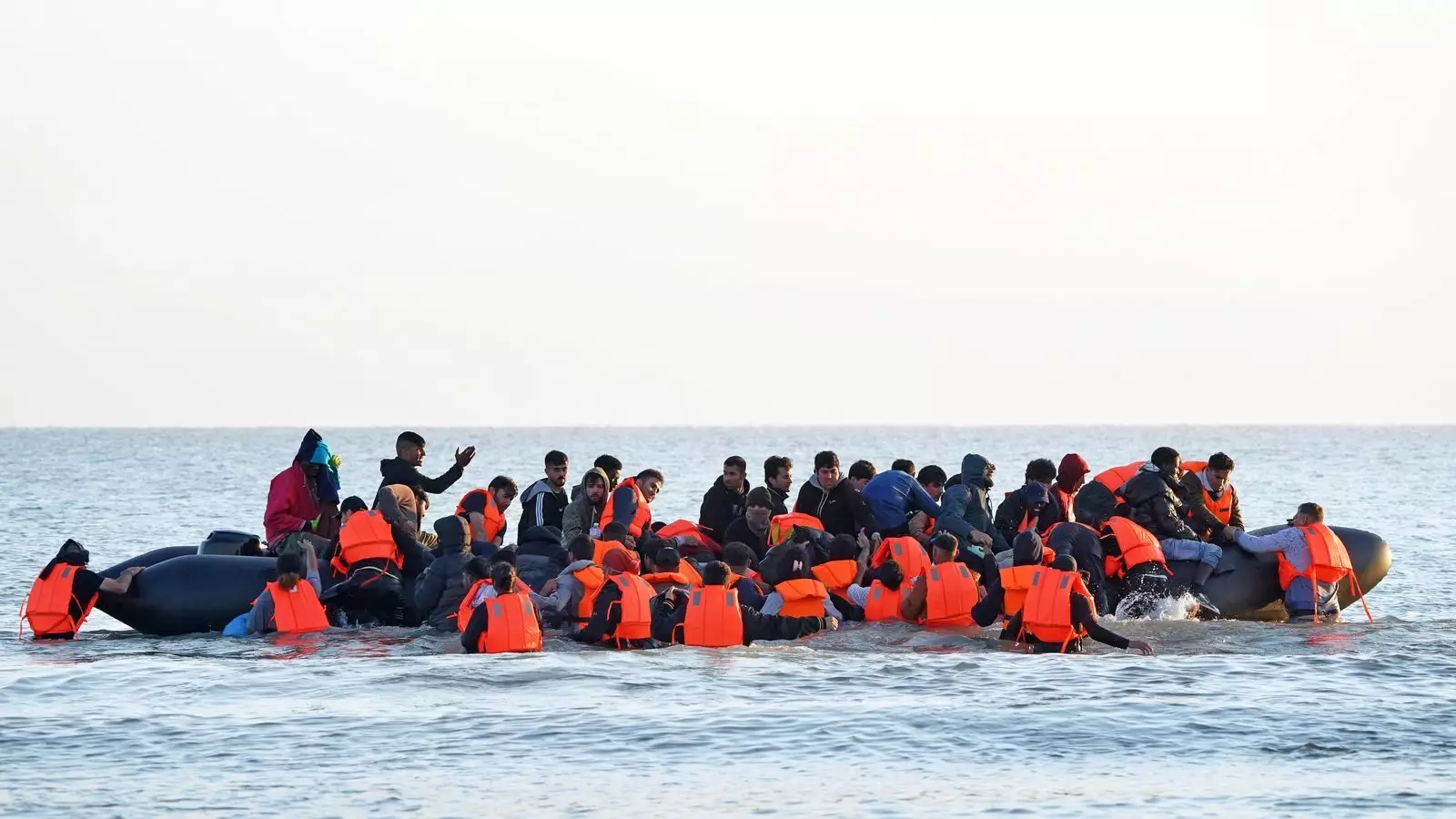The year 2024 witnessed a significant uptick in the number of migrants attempting to cross the English Channel, with provisional government statistics reporting 36,816 crossings. This represents a 25% increase compared to 2023, a year in which 29,437 individuals braved the perilous journey in small boats. Notably, though this total is substantial, it remains 20% lower than the historical peak of 45,774 arrivals recorded in 2022, indicating a fluctuating pattern in migration trends across the busy maritime route.
Since the compilation of these statistics began in 2018, the data reveals an alarming trajectory. Migrants numbered just 299 that initial year, but as the years progressed, there was a dramatic escalation. The figures leapt to 1,843 in 2019, then surged further to 8,466 in 2020, and eventually exploded to 28,526 in 2021. This steady increase underscores the desperation motivating individuals to undertake such dangerous crossings.
The Human Cost of Migration
Despite the numerical data indicating increased crossings, the human cost associated with this journey cannot be overlooked. The Home Office did not publish figures regarding fatalities during these crossings, but 2024 has been labeled the deadliest year for Channel crossings to date. The French coast guard reported that 53 lives were lost in a span of just 12 months, further highlighting the risks inherent in attempting to traverse one of the world’s busiest shipping channels.
The perilous situation is exacerbated by the fact that many individuals crossing the Channel lack safe and legal avenues to seek asylum or refuge. While some, such as those fleeing conflict in Ukraine or Afghanistan, have established pathways to legally settle in the UK, numerous others are compelled to rely on alternatives, often falling victim to the machinations of criminal gangs and human traffickers. It raises serious ethical considerations regarding the treatment and protection of vulnerable populations seeking safety.
Government Response and Political Discourse
The increase in Channel crossings has sparked fierce political debate in the UK, particularly regarding the efficacy of current immigration policies. Both major political parties have pledged to reduce the influx of migrants traversing the Channel. Labour, for example, has asserted its commitment to dismantling the operations of people-smuggling gangs, pledging to take decisive action to curtail this alarming trend.
Moreover, the predicament facing these migrants poses a significant challenge for policymakers, as they navigate the balance between humanitarian obligations and national security concerns. As the political rhetoric intensifies, it remains to be seen what tangible actions will be implemented to address this complex issue.
The increase in migrant crossings over the English Channel in 2024 indicates a growing crisis that intertwines human desperation, illegal smuggling networks, and complicated political dynamics. It reflects broader global issues related to displacement and migration, reminding us that behind every statistic lies a human story fraught with peril and hope. Addressing this crisis will require not only immediate actions against criminal organizations but also a compassionate, systemic approach to asylum and refugee support, balancing the need for security with the imperative of humanitarian aid.


Leave a Reply